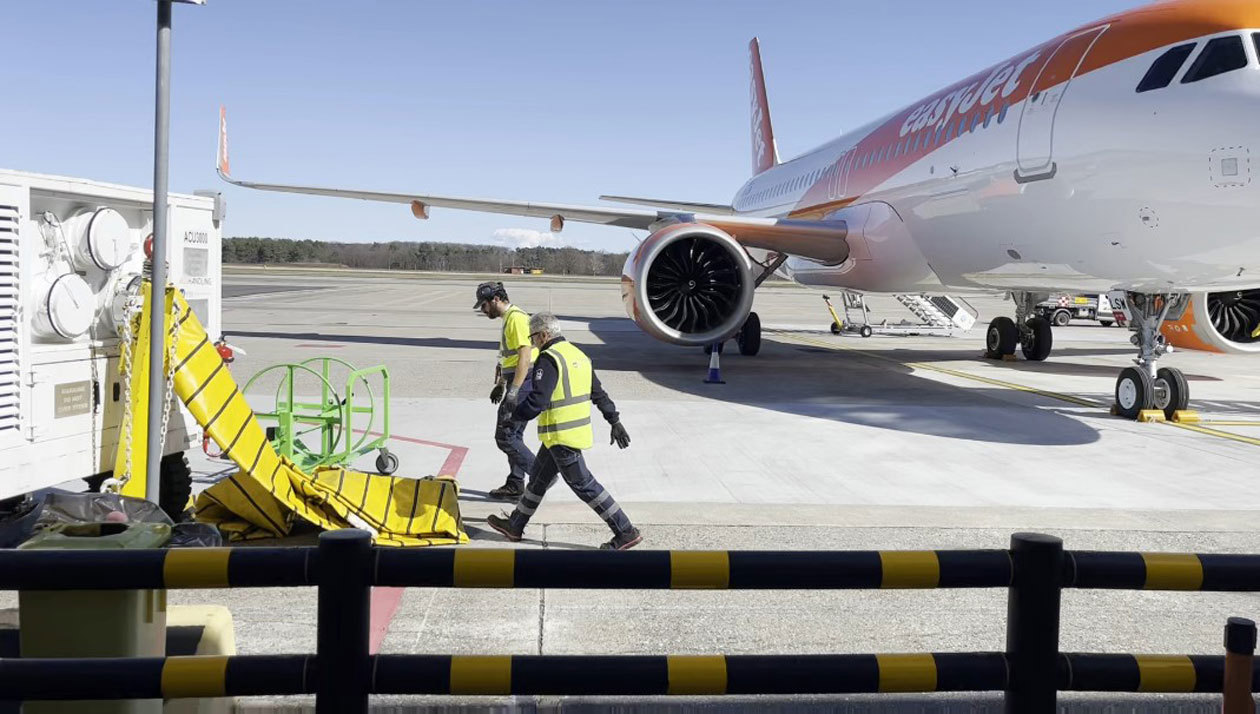13 March 2025
easyJet adopts Apu-Zero project at Malpensa
Following successful pilot operations at the airport, the airline aims to reduce fuel consumption, CO₂ emissions and noise emissions
Following a successful trial, easyJet will permanently implement the APU-ZERO Project at Milan Malpensa Airport, eliminating the use of Auxiliary Power Units (APUs) during the turnaround. This initiative, tested in July 2024 on 57 aircraft operating from Terminal 2, has made it possible to reduce fuel consumption and CO₂ emissions, while improving ground comfort for passengers and crew.
APUs, traditionally used to power the aircraft's electricity and air conditioning while it is stationary at the gate, generate high fuel consumption and contribute to noise and air pollution. To overcome this issue, easyJet (in collaboration with TCR, Guinault, Menzies and SEA) replaced APUs with Pre-Conditioned Air Units (PCAs), a more sustainable and efficient solution.

easyJet adopts the Apu-Zero project at Malpensa Copyright © Easyjet
Environmental and operational benefits
The PCAs, connected to Fixed Shore Electrical Power (FEGP), ensure aircraft air conditioning without direct emissions, instantly reducing noise and fuel consumption. Following the successful trial, easyJet plans to install 16 PCA units at Malpensa, with the first six arriving this month, followed by six more in April and four in May. Thanks to the implementation of this technology, the airline estimates an annual saving of 1,115.4 tons of fuel, equivalent to 3,636 tons of CO₂ less.
A step towards the decarbonisation of the sector
Since the launch of its roadmap for decarbonising operations in 2022, easyJet has continued to invest in innovations to reduce its environmental impact, both on the ground and in the air. In 2024, the company achieved its best ever result in terms of carbon intensity per passenger, with an improvement of 5.6% compared to 2019, approaching the Net Zero goal. The permanent adoption of the APU-ZERO Project at Malpensa represents a further step forward in making aviation more sustainable, improving operational efficiency and passenger comfort.
You might be interested in
Sustainability

Sustainable Mobility
Volotea with TotalEnergies for sustainable fuel
An agreement for the supply of sustainable aviation fuel (SAF) for use on flights departing from French airports
Sustainability

Sustainable Mobility
Delta Air Lines accelerates to a sustainable future
With the goal of zero emissions by 2050, the company invests in efficient aircraft, optimizes flight operations and promotes the use of sustainable fuels
Sustainability

Sustainable Mobility
Emirates accelerates on the green transition
From 2026, the airline, in partnership with Moro Hub, will move its data center to the Mohammad Bin Rashid Al Maktoum Solar Park, the world's largest solar-powered data center



